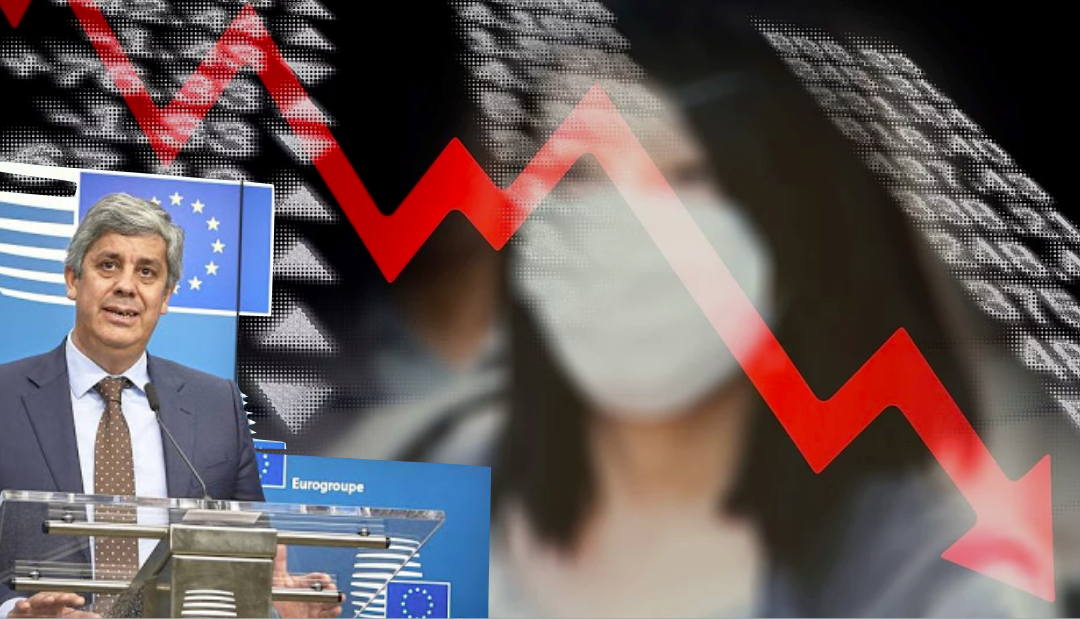The Eurogroup confirmed the highly needed suspension of fiscal constraints on Eurozone governments. But allowing countries to spend more does not mean all of them can afford to spend more.
Yesterday, March 16th, European finance ministers attended the Eurogroup meeting via teleconference to discuss how to address the economic consequences of the Coronavirus crisis.
Much pressure was on the Eurogroup after the market crashed last week, following the acceleration of the spread of the virus and the unfortunate statements from the ECB President Lagarde. As we explained last week, the Coronavirus reveals once again how weak the Eurozone architecture is, in the absence of a clear mandate for the ECB to intervene.
Unfortunately, the decisions from the Eurogroup remain largely unsatisfactory as they merely announced a package of measures that were already decided by each member state.
By relaxing fiscal rules, the Eurogroup claims it will mobilise around 1% of their GDP (€120 billion) to fight against the economic fallout from the coronavirus. But this measure was in fact already pre-agreed by the heads of States last week, so what the Eurogroup announced yesterday wasn’t really new.
Certainly, the use of flexibility clauses in the Eurozone fiscal rules is to be welcomed as it will help ensure that countries are not refraining from deploying the urgently needed public spending on healthcare and medical research.
But allowing countries to spend more does not mean all of them can afford to spend more. The case of Italy is particularly worrying as its public debt is already high, and its cost is becoming increasingly expensive because of tensions on markets (which were reinforced by the ECB last week).
This is why a European solution was needed, to make sure that all vulnerable countries like Italy, whose public debt is becoming increasingly expensive because of tensions on markets.
Sadly, the Eurogroup has dismissed so far the option of activating one powerful tool – a special European Stability Mechanism (ESM) loan programme – free of political conditionality and punitive interest rates – for countries affected by the crisis. In turn, such a step would have allowed the activation of Outright Monetary Financing (OMT) by the European Central Bank, which may be needed in case the situation deteriorates.
Eurogroup President Mario Centeno said they “are not taking any possible solutions off the table”, so they’re likely to discuss it later. But delaying this discussion is risky: if we let the “spread” between Italian bonds and German bonds to widen quickly, EU policymakers are increasing the risk of propelling a debt crisis on top of the sanitary crisis.
As for the fight against the Coronavirus, prevention is better than the cure. European leaders must ensure that the tools that were painfully established during the Eurozone crisis – such as the ESM and OMT – are still fit for purpose under the current situation, and ready to be activated.
The stakes now are high!


Does Outright Monetary Financing mean printing money? Are you saying that the ECB, should be given the permissions needed to create new money for the Eurozone so that countries like Italy do not need to go into high interest debt to save them from a recession. And would you propose that some of that money should simply be gifted into citizens bank accounts? E.g. as a temporary universal basic income?
Yes Thomas, here is our latest proposal regarding “helicopter money” (which can be described as a temporary basic income too): https://www.positivemoney.eu/2020/03/helicopter-money-covid19-report/